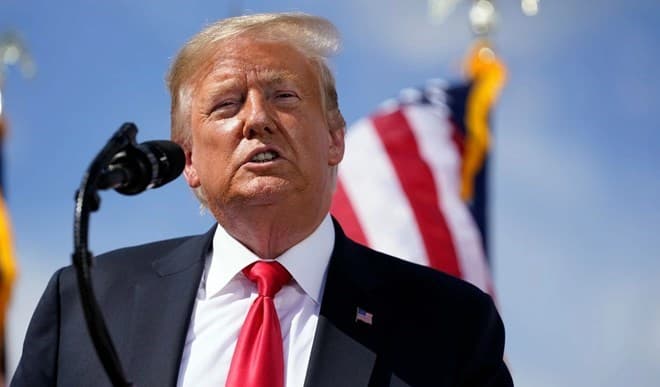We're loading the full news article for you. This includes the article content, images, author information, and related articles.
Former US President Donald Trump's recent remarks signal a potential shift in America's military engagement in East Africa, raising questions about the future of joint operations with Kenya and Somalia.

Former United States President Donald Trump has openly questioned his country’s long-standing military operations in Kenya and neighbouring Somalia, potentially signalling a significant shift in US foreign policy. Speaking to top US military officials on Tuesday, September 8, 2025, at the Marine Corps Base Quantico in Virginia, Trump stated it was not the military’s role to defend foreign nations, citing an “invasion from within” America.
These comments represent one of the clearest indications yet that a future Trump administration could scale down US military involvement abroad, including in East Africa. His address to over 800 generals underscored a focus on homeland defence as the military's primary mission.
The US maintains a significant military presence in Kenya, primarily at Camp Simba in Manda Bay, Lamu County. This base is crucial for counter-terrorism operations against al-Shabaab in Somalia and the broader East African region. Joint training exercises, intelligence sharing, and logistical support are key components of this partnership, aimed at enhancing regional security and stability. The US Africa Command (AFRICOM) oversees these operations, working closely with the Kenya Defence Forces (KDF).
A potential reduction or withdrawal of US forces could have profound implications for Kenya's security apparatus and its capacity to combat terrorism. The KDF has benefited significantly from US training, equipment, and intelligence, which are vital in ongoing efforts against extremist groups. Such a move could also impact regional stability, potentially creating a vacuum that extremist organisations might exploit.
Analysts in Kenya suggest that Trump's statements could influence public debate and policy execution in the near term. Stakeholders are urging for clarity on the timelines, costs, and safeguards associated with any potential changes to US military engagement. The uncertainty surrounding future US policy necessitates a re-evaluation of Kenya's defence strategies and partnerships.
The primary risk is a potential degradation of Kenya's counter-terrorism capabilities if US support is significantly reduced without adequate compensatory measures. The financial implications of filling any operational gaps left by a US withdrawal would also be substantial for Kenya. It remains unknown whether a future US administration would indeed implement such a policy, and if so, the specific scope and timeline of any scale-down.
Observers will be closely monitoring any further statements from former President Trump or his representatives regarding US foreign policy and military deployments. The reactions from the US Department of Defense and State Department, as well as official communications from the Kenyan government, will be crucial in understanding the potential trajectory of this partnership. The upcoming US presidential election will be a pivotal event, as its outcome could directly influence the implementation of such policies.
Keep the conversation in one place—threads here stay linked to the story and in the forums.
Sign in to start a discussion
Start a conversation about this story and keep it linked here.
Other hot threads
E-sports and Gaming Community in Kenya
Active 9 months ago
The Role of Technology in Modern Agriculture (AgriTech)
Active 9 months ago
Popular Recreational Activities Across Counties
Active 9 months ago
Investing in Youth Sports Development Programs
Active 9 months ago